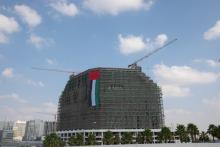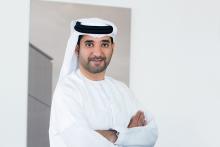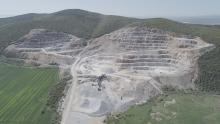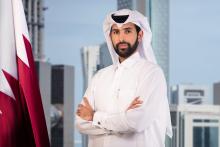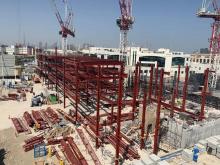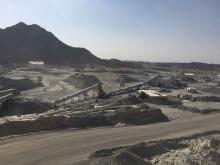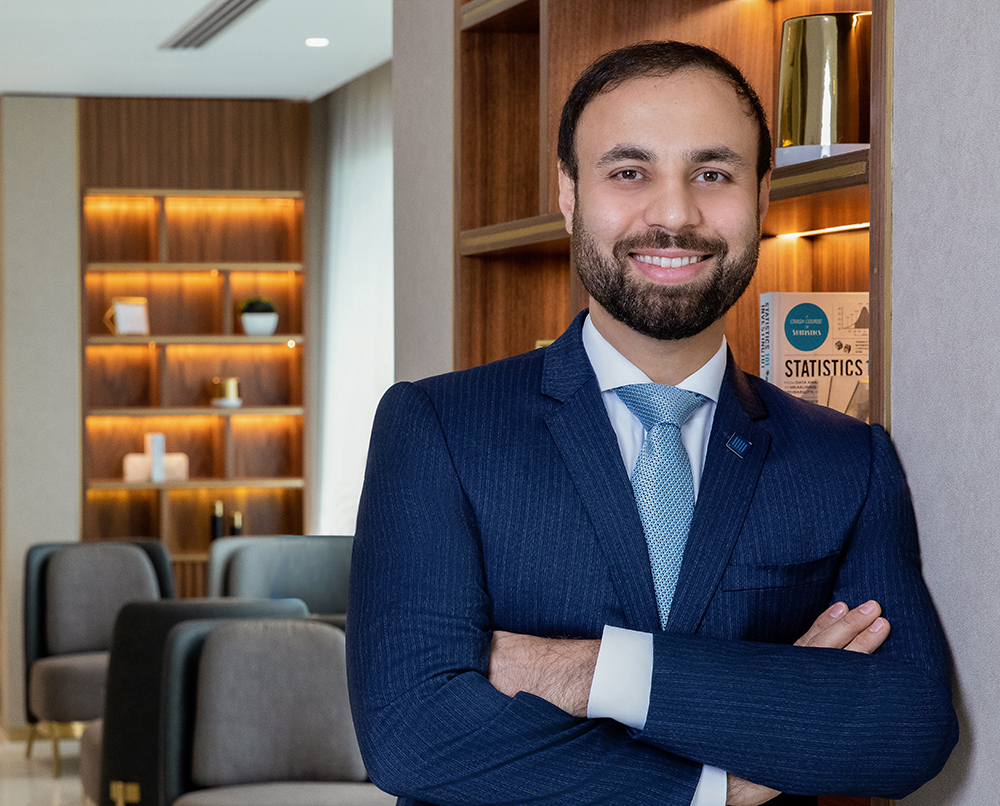
Farhad Azizi is proud of his company’s strong track record and sizeable project pipeline through its extensive land bank and strategic partnerships with Dubai’s key master developers, and its instrumental role in developing world-class properties in Mohammed Bin Rashid City (MBR City), Palm Jumeirah, Dubai Healthcare City, Al Furjan, Studio City, Sports City and Downtown Jebel Ali.
Azizi Developments is currently working on close to 100 construction projects due for completion before or in early 2023, and a further 100-plus projects in planning, worth billions of US dollars, earmarked for completion between 2023 and 2025.
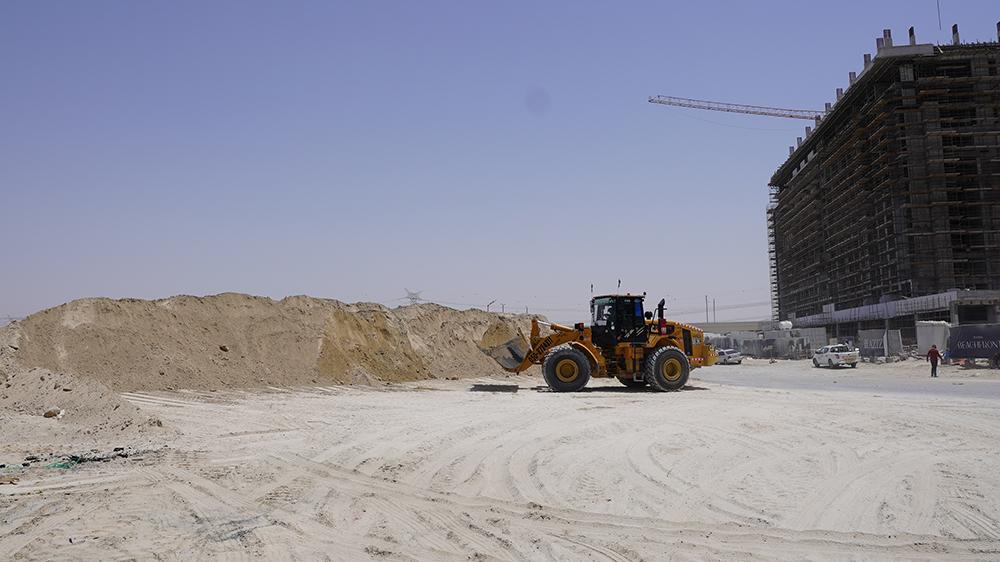
Azizi says Dubai’s real estate market has become a topic of major attention this year due to factors that were anticipated to impact the Emirate’s property industry’s trajectory, all pointing towards strong growth.
“In many respects, Dubai’s economic growth has been incredible. The UAE government has undertaken scores of measures and changes in recent years, mostly targeted at bringing more foreign direct investment into the city.
“The 10-year visa (also known as the golden visa) was created by the government to provide individuals with long-term residencies and attract and retain talented people in the country. Furthermore, legislation allowing for the ownership of businesses in the Emirate without the need for a local sponsor aided economic growth.”
Azizi states that Dubai’s exceptional success in the real estate market in 2021 piqued the interest of global property investors. The market, he says, outpaced other property markets worldwide, topping Paris, London, New York, and Hong Kong due to years of infrastructure and population expansion.
“Dubai is placed third in the world in terms of residential capital growth in 2021, with a 17% rate of transactions. Additionally, 2021 saw the biggest value in the sector’s history, totalling US$81.69 billion, a year-over-year increase of 72%.”
Looking ahead to 2022 and beyond, the Dubai real estate market is expected to maintain its upward trend, buoyed by a steady infusion of fresh money and a cautious release of new supply by government and part-government-run firms. With inflation on the rise and interest rate rises looming, Dubai real estate has proven to be an excellent hedge for investors.
Azizi highlights the huge interest in Project Riviera, part of Azizi Developments’ award-winning real estate portfolio. It is a stylish waterfront-lifestyle destination located in the heart of MBR City that comprises 71 mid-rise buildings which will have around 16,000 residents upon its completion, who will benefit from being conveniently located close to all Dubai’s business, leisure, and retail hubs.
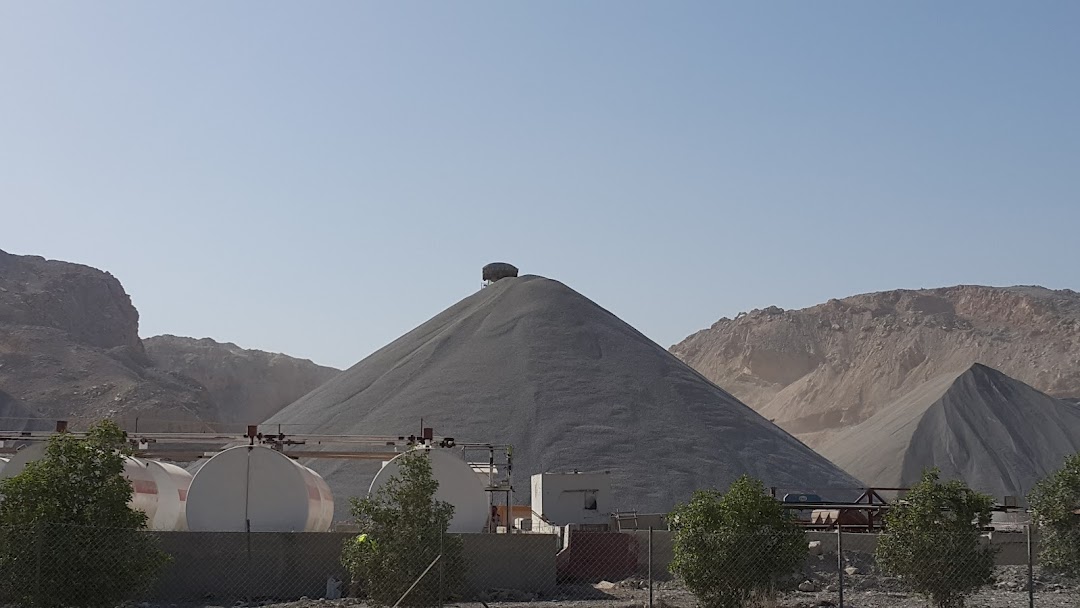
Like many companies in Dubai, Azizi Developments made considerable gains due to Expo 2020. Originally scheduled for 20 October 2020 to 10 April 2021, the global event was postponed due to the COVID-19 pandemic, with the Expo 2020 name retained for marketing purposes. When it was staged from 1 October 2021 to 31 March 2022, the event recorded more than 24 million visitors.
Azizi says his company had a large concentration of projects in Expo 2020’s vicinity with direct connectivity to the site.
“We had two projects in Al Furjan-Plaza, a 448-unit development comprising 286 studios, 46 one-bedroom units, 86 two-bedroom residences, 16 luxurious penthouses as well as 14 retail units, and Star, a 499-unit development constituting 486 residential units and 13 highly sought-after retail spaces. The residential units comprise 334 studios, 48 one- and 94 two-bedroom apartments, as well as 10 spacious, luxurious sky villas.”
He continues: “Are you familiar with the term ‘the Expo effect’? It is used to describe the continuous positive impact the Expo has on its host country 10 years after the exhibition. Looking at previous host cities, real estate prices in Milan and Shanghai kept on soaring following the Expo. Dubai will be no exception to the Expo effect and considering how developed Dubai’s real estate market was even before the Expo, the gains will probably double.
“We have become a tech-savvy firm thanks to major digital transformation. We have become even more customer-centric and have built an experienced team of industry experts, responsible for reviewing and analysing our business model and offerings to provide corrective actions as and when required. Through our knowledgeable team and other market intelligence channels, we now have a solid understanding of our customers’ wants and needs.”
Azizi says that as oil prices continue to surge due to the Russia-Ukraine war, imports of aggregates, steel and concrete were likely to increase proportionally in price. “Thankfully, we closed major lump sum deals months before the war began. These deals comprised fixed pricing, meaning that we are not absorbing increases in commodity prices, shipping rates and so forth.”
With Ukraine being one of the largest producers of structural steel globally, Azizi anticipates that the construction industry across the world will be affected in the short to medium term. UAE-based companies are impacted as shipping costs are on the rise again. To overcome the problem, all companies are working on one core principle – buying local wherever possible — because if they want anything that needs to be imported, they will have to pay much more. There are also inevitable delays in goods reaching the ports here because of container scarcity.
Anything shipped in from overseas is likely to have risen in price. This is purely due to the higher logistics costs. Timber prices too have affected joinery firms, with prices up by as much as 35% in some cases. Locally manufactured materials, such as concrete and aluminium, have remained the same or even decreased in price during this period.
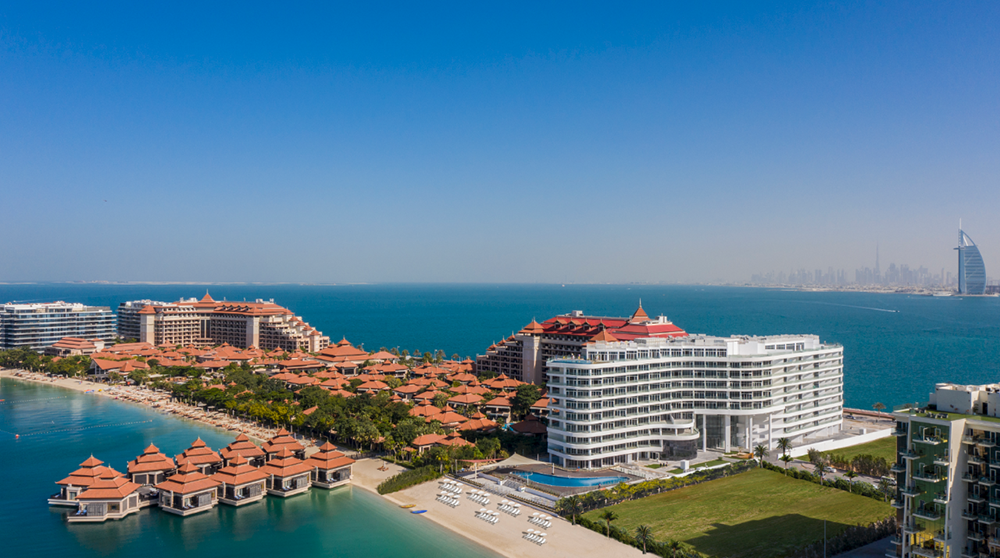
Construction material, such as concrete and steel, are generally sourced from within the GCC (Gulf Cooperation Council) — the UAE, Saudi Arabia, and Oman — while products used for finishing, those that customers see and touch, are still mostly procured from well-known manufacturers overseas, especially those in Europe.
Azizi Developments buys the aggregates of different sizes such as 3/16” and 3/8” from various companies including Mohammed Al Nasseri, Sandstone Building Stones Est, Al Ebtikar, and Ahmd Sayed Saleh Al Hashmi on a regular basis. “We are relatively using the same materials for many years with quality remaining high,” Azizi emphasises.
Azizi requires 41,000m³ of aggregates and other construction material every year and there is no dearth of suppliers in the country. Dubai-based Sand Stone Building Material Trading supplies black wash sand, white wash sand, road base, all types of aggregates, red dune sand, interlock sand, pebble stones, silica sand, silica gravel, and decorative stones.
Shamsaldin Khadempour, the company’s managing director, says Azizi Developments is among the few developers which source their own construction material. “Our premium washed black sand used in the developer’s masonry was deemed a perfect fit for many of the company’s projects, and we are confident of working with Azizi Developments for many years ahead.”
Another major Azizi Developments supplier is Fala Building Material Trading (Fala), known for its earthworks like excavation and cart away, transport and backfilling material, laying temporary roadworks, interlock paving and supply and installation of all types of interlock and kerbstones. Fala also supplies building material (road base, sub-base, black sand, red sand, and all types of aggregates) and does fence works including fabrication, supply and installation of pre-painted galvanised iron (PPGI) temporary and continuous fencing.
Fala’s operations manager, Rammah H Kourbaj, says: “While we usually sell our products to contractors mostly, we welcome big orders from Azizi and appreciate working with them as it pays great attention to detail and a true customer-first mindset, evident in how it procures its aggregates and construction materials.”
Ahmd Sayed Saleh Al Hashimi Trading (ASSHT) supplies black washed sand, white double-washed sand, red dune sand, top-quality road base, crushed aggregate 3/4 (10mm-20mm), 3/8 (5mm-10mm) and single-size aggregate 3/16 (2mm-5mm) to many of the Azizi’s projects.
ASSHT manager Ahmed Abdallah says that his company regularly supplies huge quantities of crushed sand for interlock paving laying within Azizi Developments’ construction projects. “Azizi’s procurement process is very comprehensive and stringent and meet the standards of the industry.”
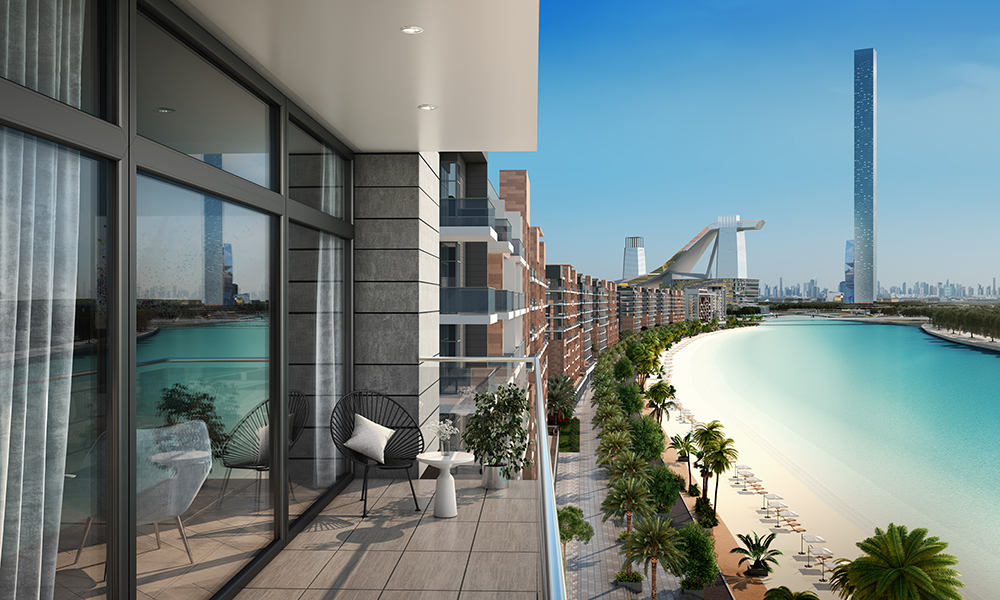
Azizi Developments is aligned with the UAE’s commitment to reduce carbon emissions by 50% by 2050 and prioritises using eco-friendly building materials in all its projects. “Sustainability is very important, and we consider it in all our aggregate purchases. It is one of our core values, with our developments having carbon footprints as low as possible,” stresses Azizi. “Whether it is UAE-based steel or cement manufacturers or suppliers, such as RAK Ceramics, we are finding that being based close to our buyers is a winning strategy. We have signed over 35 major direct deals with suppliers of construction materials in the past six months alone.”
Azizi Developments has taken over procuring construction material from steel and concrete to tiling and doors, rather than letting contractors do it. Azizi adds: “These materials represent roughly 70-80% of the development costs. Now contracts signed with our contractors are roughly only 20%-30% of the value they used to be.
“We now hire contractors solely for their expertise and skill, manpower and mobilisation, rather than for their procurement capacity. This is a win-win for both sides – not only does it mean less risk for contractors who now don’t have to take on massive financing to purchase materials from their side, but more importantly, it gives us as the developer much more control over the supply chain management, and ultimately, our quality.”
While the in-house construction-material-procurement approach entails more burden, work and risk for Azizi Developments as a developer, Azizi emphasises that it ensures that the final build meets and exceeds customer expectations. “It is the key to customer happiness as it is quality which sells the properties. It also proves helpful when prices are volatile, as we can leverage economies of scale by making larger material purchases for several projects at the same time and can negotiate with suppliers directly, giving us more control.”
Azizi highlights that Azizi Developments has, to date, constructed nearly three million sq. ft of built-up area including 150 multi-storied buildings, with over 150,000m³ of concrete poured in 2021 alone. “We are planning to hand over 42 projects comprising 8,895 units this year,” he says, proudly.
Dubai’s population is likely to double in the next 20 years, creating huge demand for new residential communities, and great commercial prospects for Azizi Developments. The company’s CEO is looking forward to what comes next, with the knowledge that his heavily localised building-materials supply chain can be relied on to help maintain the business’s eye-catching growth journey.

